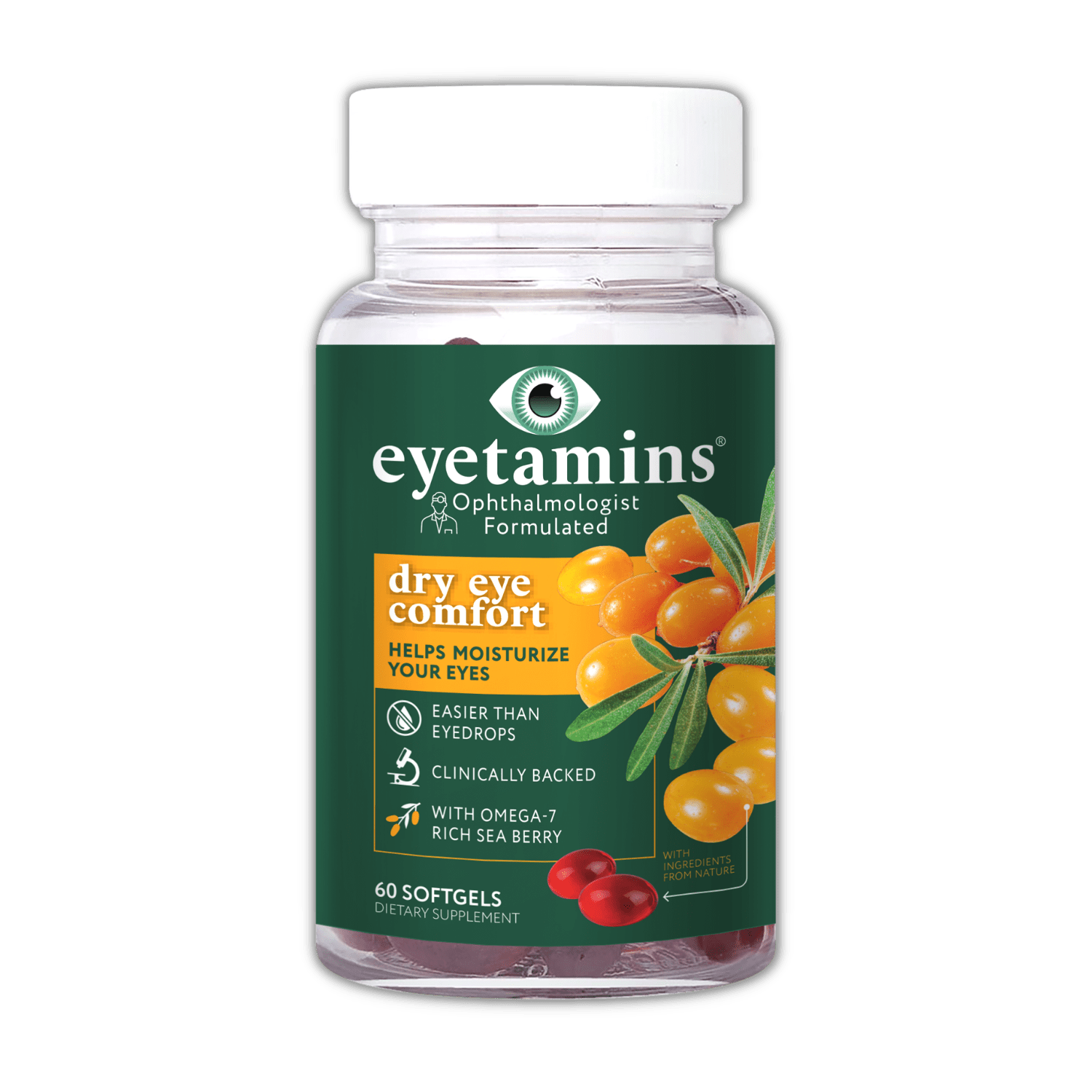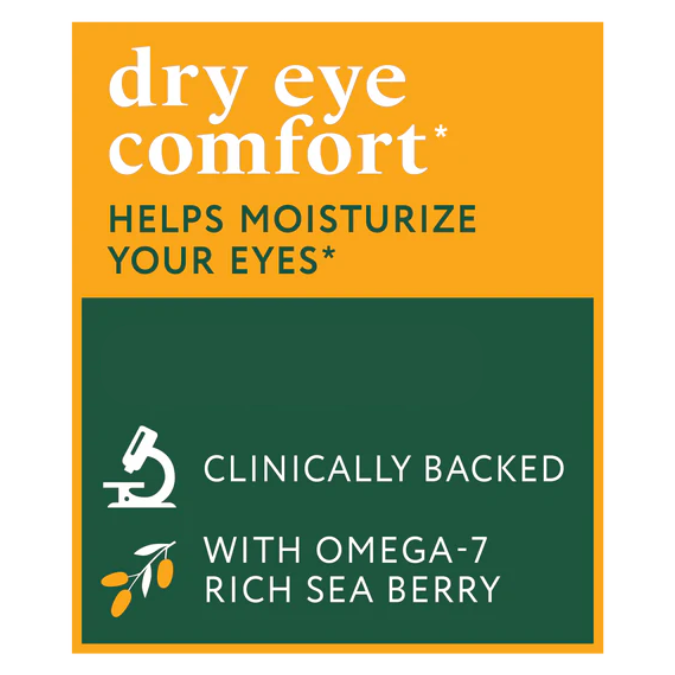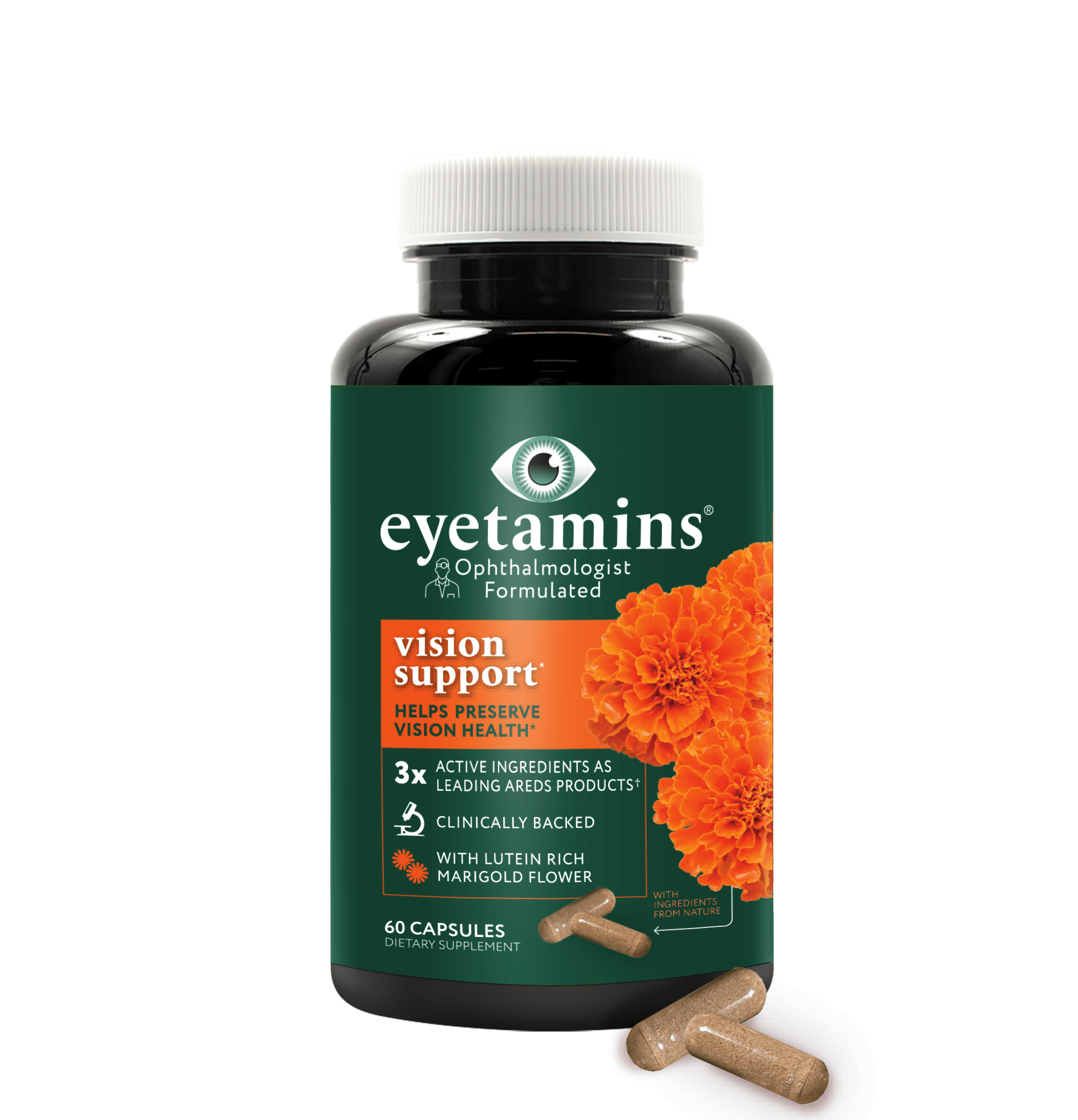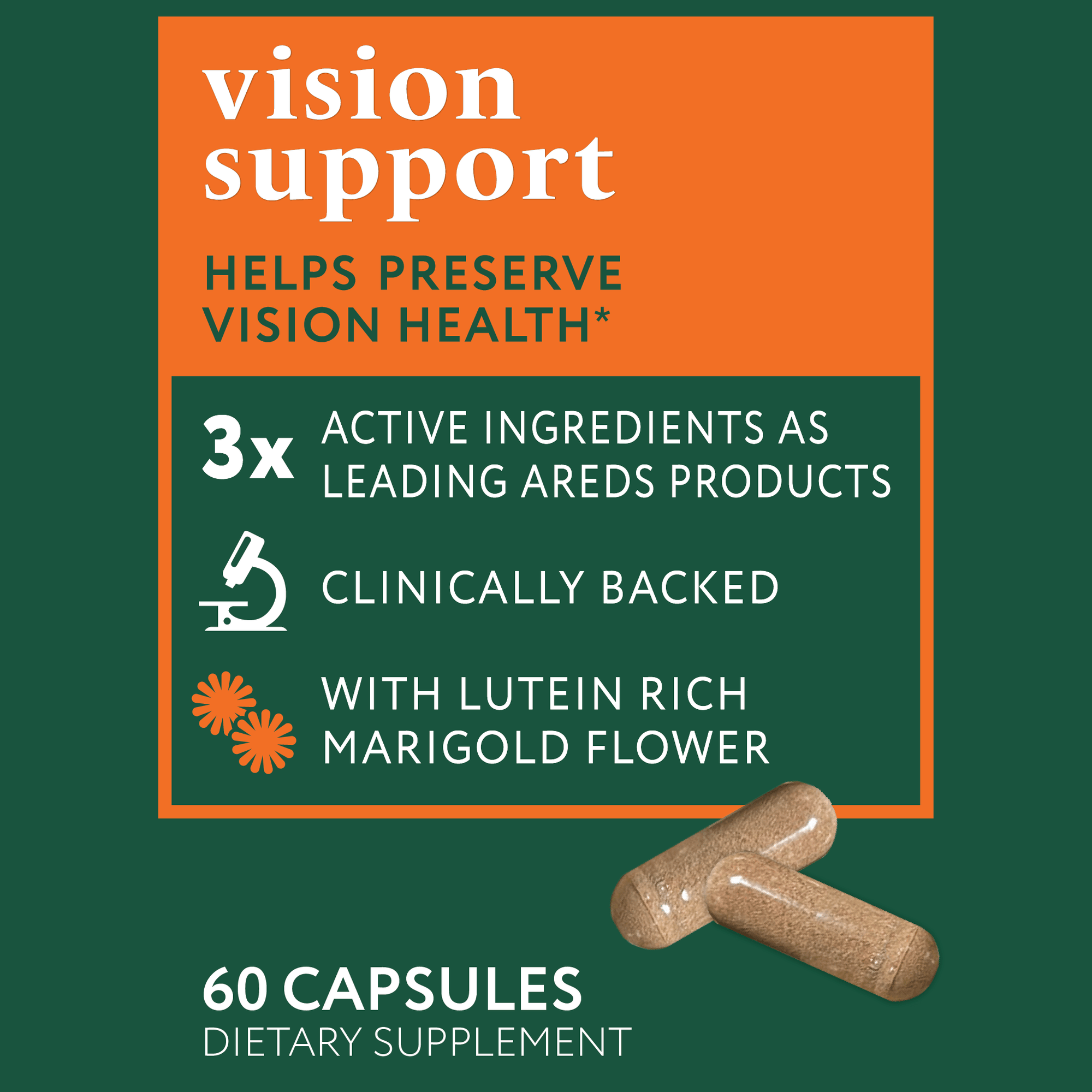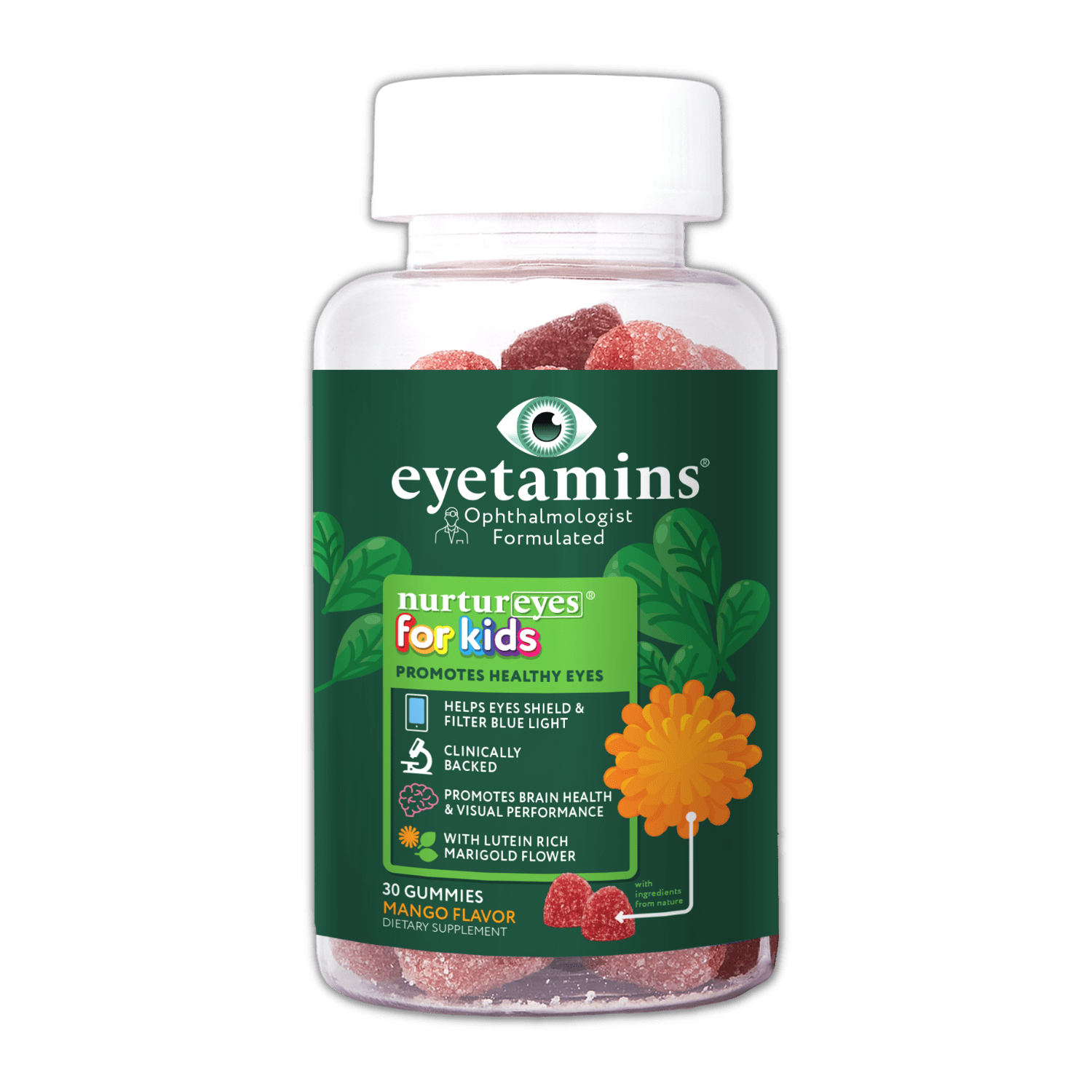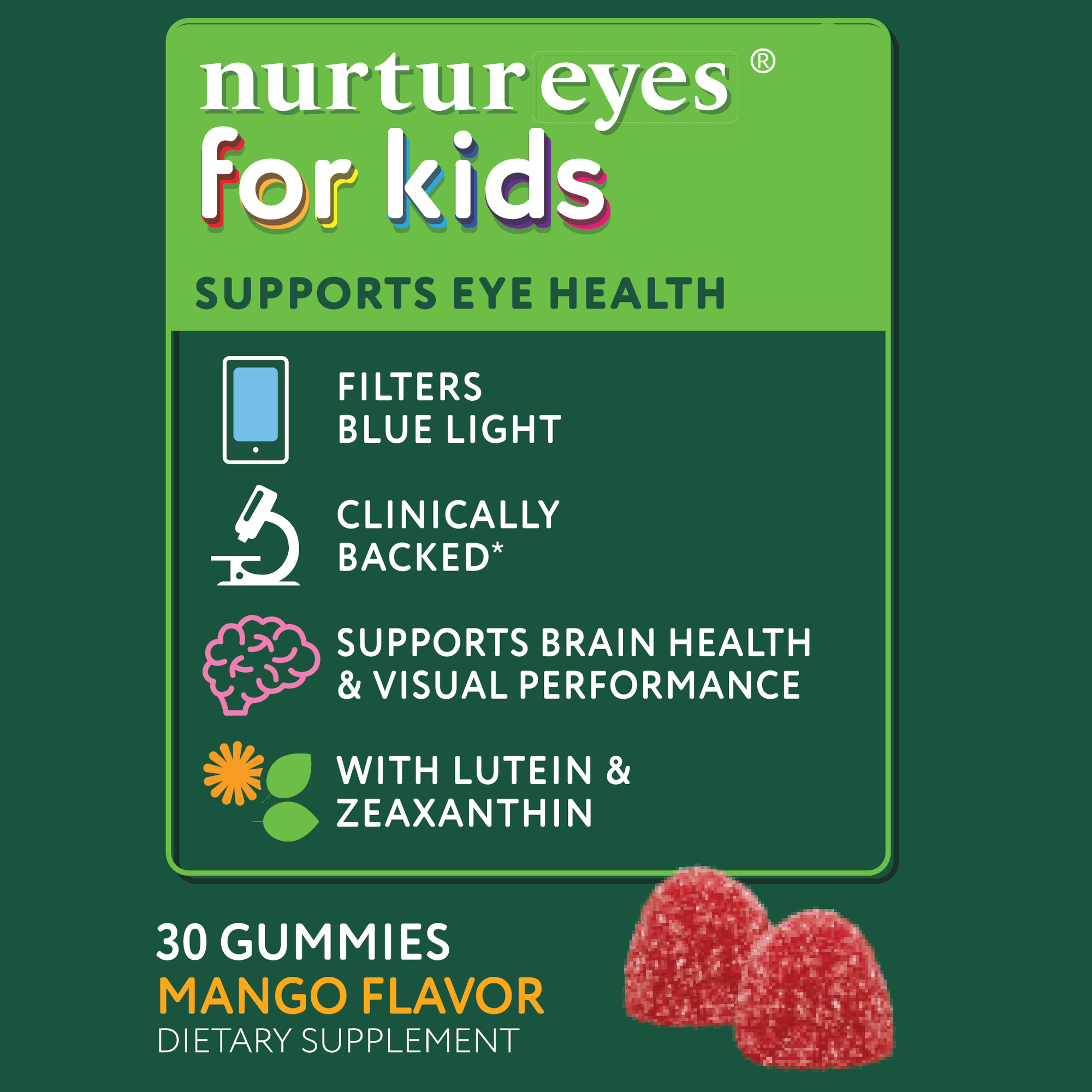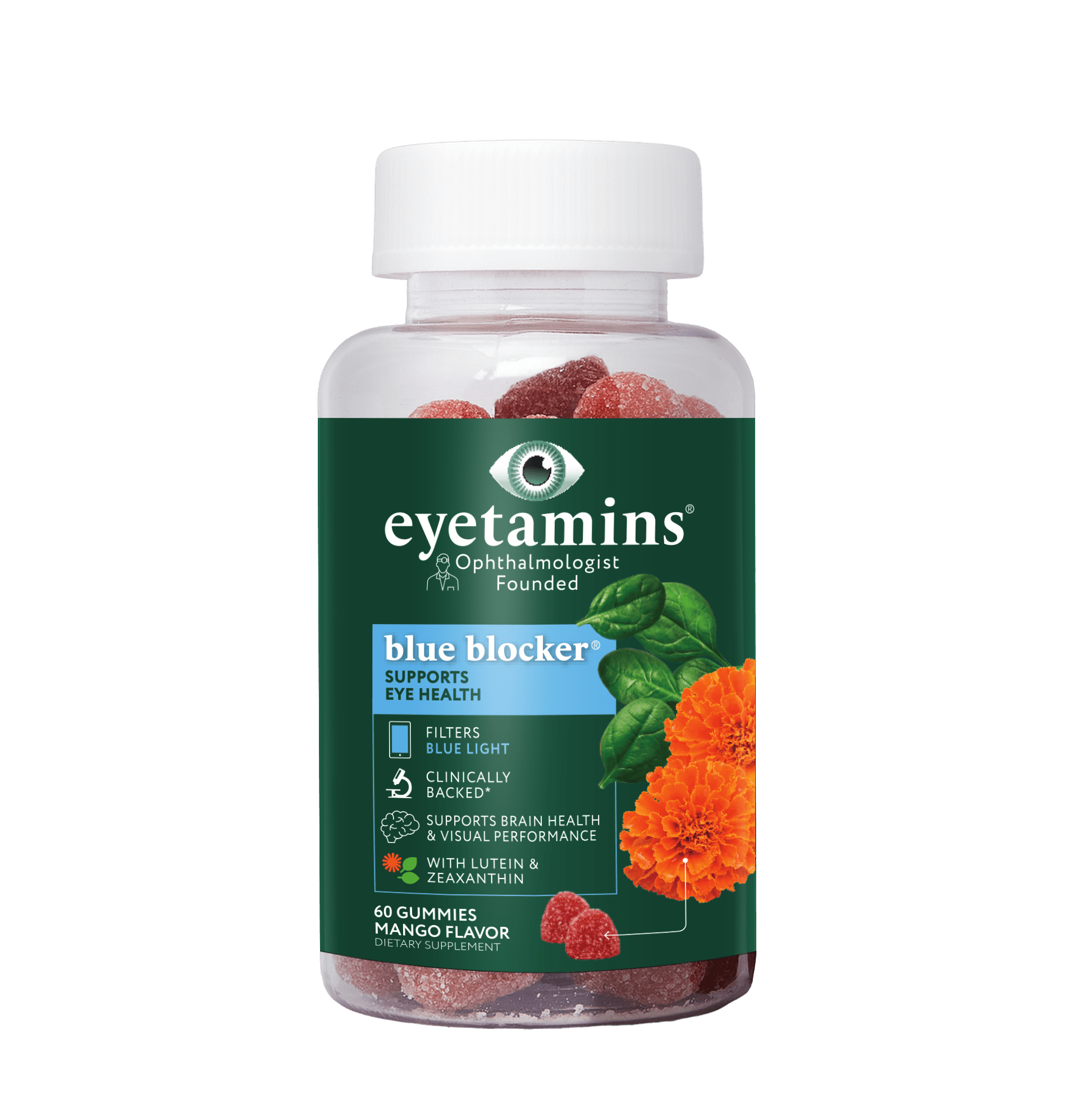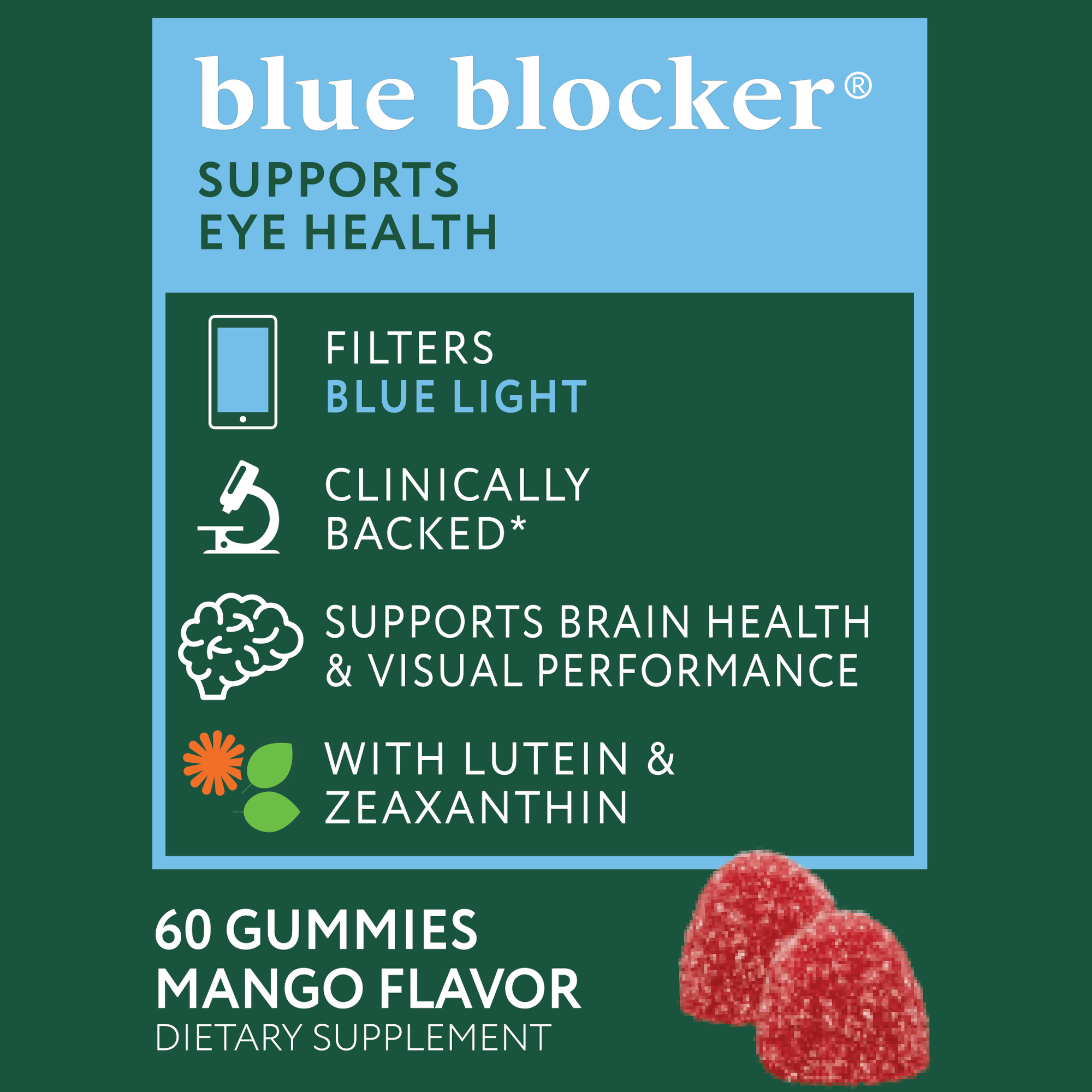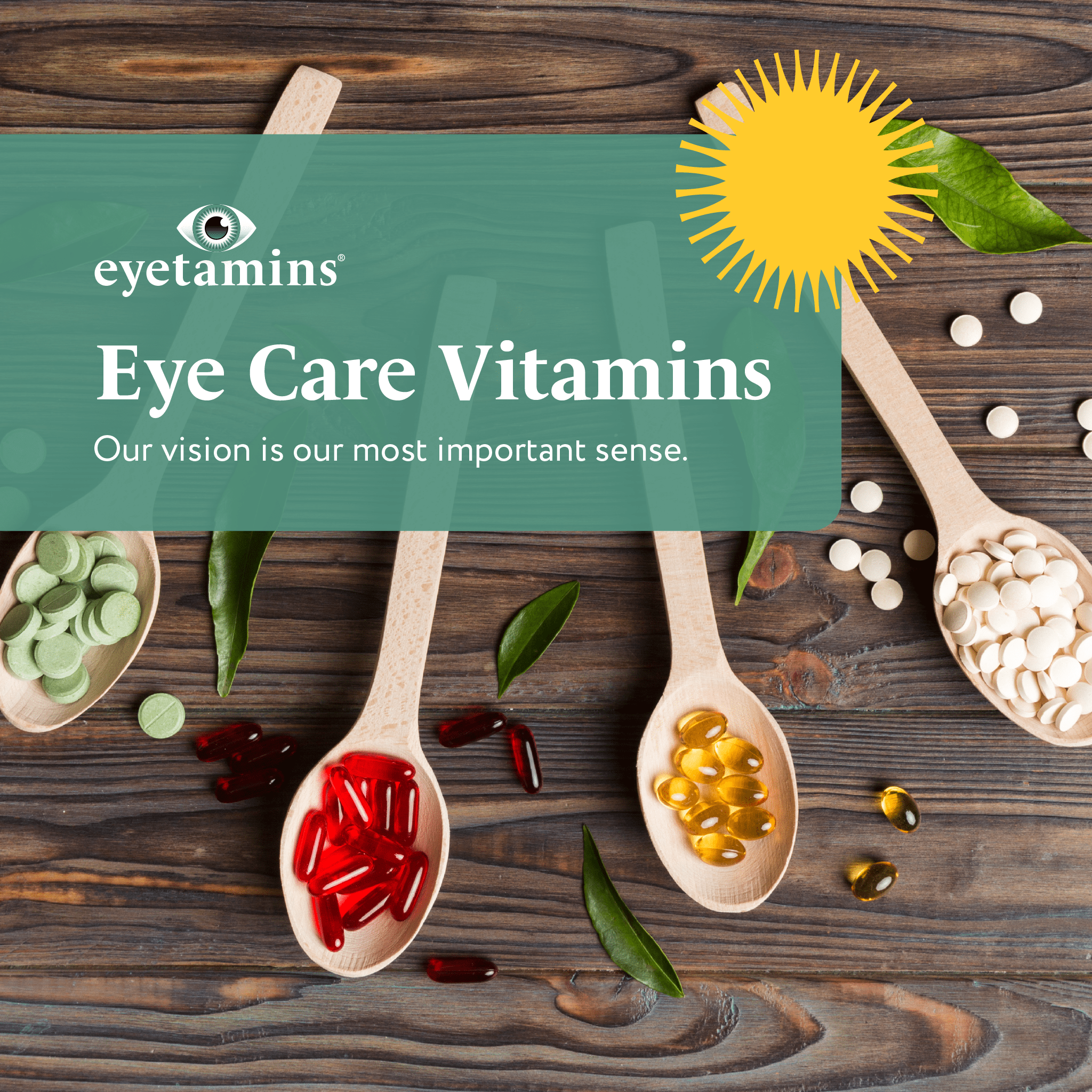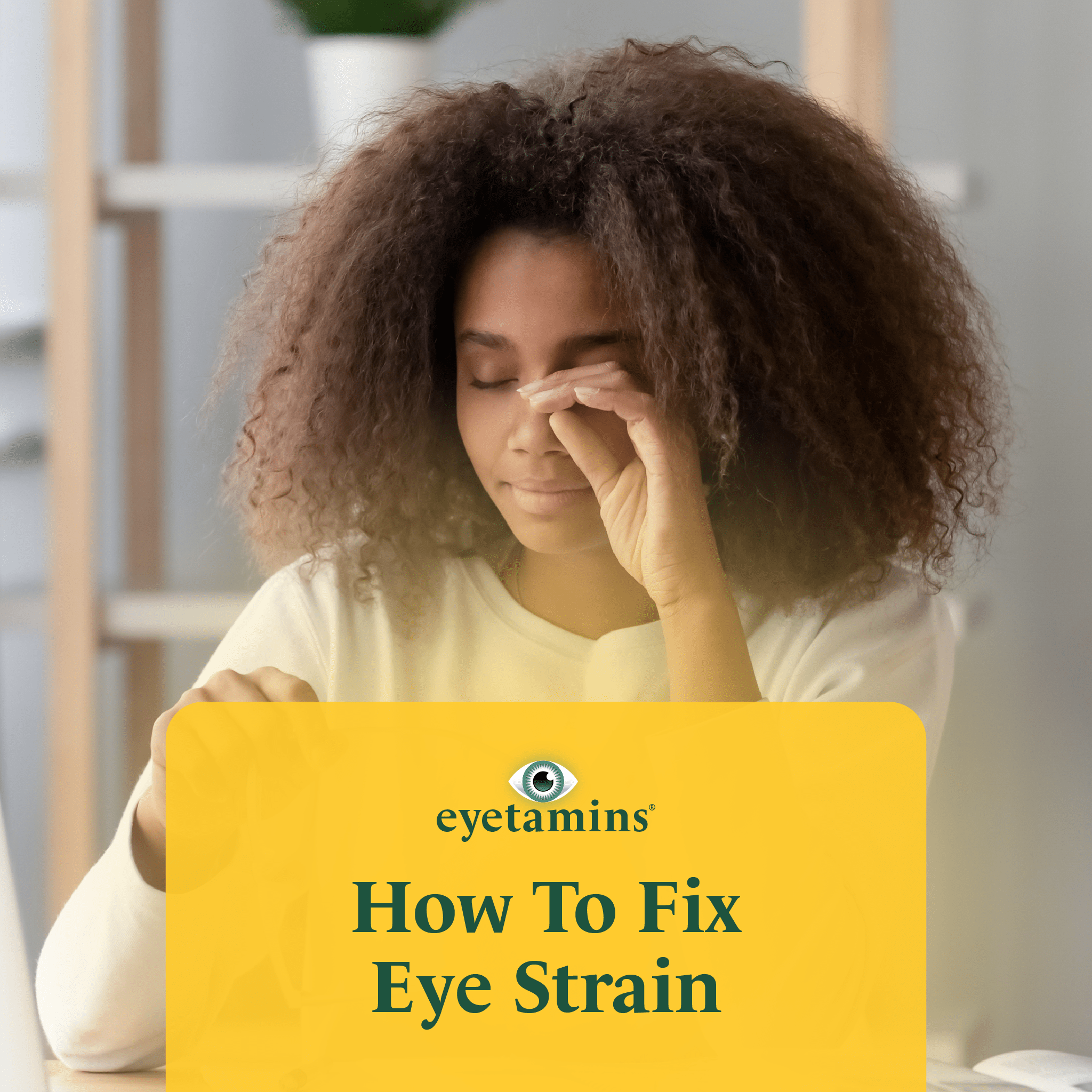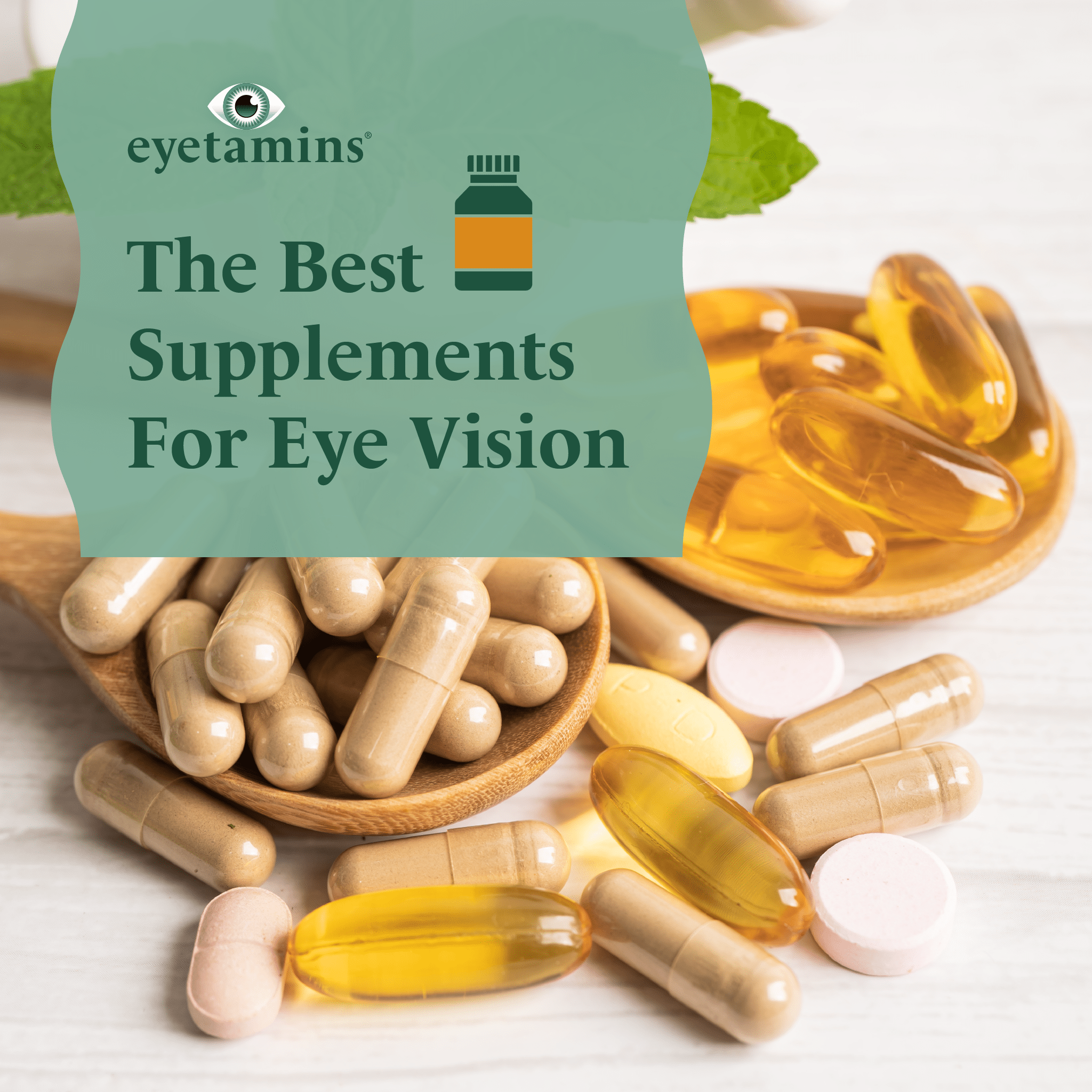· By Dr. Kaushal M. Kulkarni, M.D.
How Do Eye Vitamins Work?
There may be no easier way to care for your eyes than by adding an eye vitamin into your daily routine. After all, a good eye vitamin contains all of the proper vitamins and nutrients your eyes need to stay lubricated, make minor repairs, and keep your vision sharp.
But how do eye vitamins work? What do they do once they’re in your body, and why are they so good for you? In this article, we attempt to answer just those questions, plus break down all of the nutrients an eye vitamin should contain.

What Vitamins Are Good For Eyes?
The purpose of taking a daily eye vitamin is to ensure your body is getting all of the most eye-healthy nutrients. As you choose an eye vitamin, make sure it contains some or all of the following:
Lutein and Zeaxanthin
These two carotenoid antioxidants are vital to proper eye health. Absorbed by the retina, lutein and zeaxanthin act as a natural sunblock for your eyes, and have been found to decrease the risk of progression of age-related macular degeneration (AMD) in some individuals.
Vitamins A, C, and E
A powerful antioxidant and immunity booster, Vitamin A has been found to promote eye health. Vitamin C helps your eyes form their structure, while Vitamin E helps your eyes fight harmful free radicals that can cause serious damage.
Omega-3 Fatty Acids
Omega-3 fatty acids, sometimes known as “fish oil,” are perhaps best known for being good for your brain, but they also help keep your eyeballs lubricated and have been extensively studies in dry eye.
Zinc
In addition to helping to form the pigment of the retina, zinc is part of a good overall eye health formula.
How Do Eye Vitamins Work?
Though it may sound counterintuitive, like anything else you ingest by mouth, eye vitamins go straight to your stomach. From there, they can be categorized in one of two ways: water soluble, or fat soluble. Water-Soluble vitamins are absorbed by the intestines before they are carried through the blood to wherever it is they are needed, in this case to the eyes.
However, water-soluble vitamins are easily flushed out of the body via sweating and urination, and therefore should be put into the body on a more frequent basis. Daily eye supplements make this necessary replenishment a simple task. Important, eye-healthy vitamins that are water soluble include:
- Vitamin C
- Vitamin B
- Saffron
On the other hand, fat-soluble vitamins tend to remain in the body longer because they are harder to break down. Unlike water-soluble vitamins, which make it to the bloodstream pretty quickly, fat-soluble vitamins are absorbed by lacteals in the small intestine, then transported throughout the lymphatic system before finally releasing into the blood. Once in the bloodstream, they are transported throughout the body. Important, eye-healthy vitamins that are fat soluble include:
- Lutein and zeaxanthin
- Vitamin A
- Vitamin E
- Copper
- Zinc
People Also Ask
1. What do vitamins for your eyes do?
Supplements formulated for eye health contain the vitamins and nutrients your eyes depend on to work properly and to stay healthy. Good vitamins for your eyes include vitamins A, C, and E; lutein and zeaxanthin. Though they all perform their specific roles, these vitamins are necessary for lubricating your cornea, preventing serious eye issues, protecting your eyes from the sun, and so much more.
2. Do eye vitamins really help?
Yes. A good eye vitamin will be formulated by eye doctors and contain the nutrients specifically known to benefit eye health and function, according to the AREDS 2 study.
3. Which vitamin is best for your eyesight?
Your eyes need a number of vitamins in order to work properly. These include Vitamins A, C, E, lutein and zeaxanthin, among a few others. Though it is possible to get all of these vitamins into your daily diet, taking a daily eye vitamin makes getting those nutrients even easier.
4. Do eye vitamins have side effects?
As long as they are taken as directed, eye vitamins should not have any side effects.
Conclusion
Daily supplements that are specially formulated by ophthalmologists for eye health make it easy to ensure you are providing your eyes with the right vitamins and nutrients. Unlike having to depend on getting a balanced diet – the foods for which just aren’t available to everyone for various reasons – a simple daily supplement makes it easy to ensure you are providing your body with all of the proper nutrients.
A good eye vitamin will include nutrients such as lutein and zeaxanthin, zinc, and vitamins A, C, and E, among others. While some of these are immediately absorbed into the bloodstream, others are absorbed more slowly. In either case, these important eye-healthy nutrients eventually make it to the eyes, where they help with lubrication, minor repairs, and the prevention of serious vision problems.


